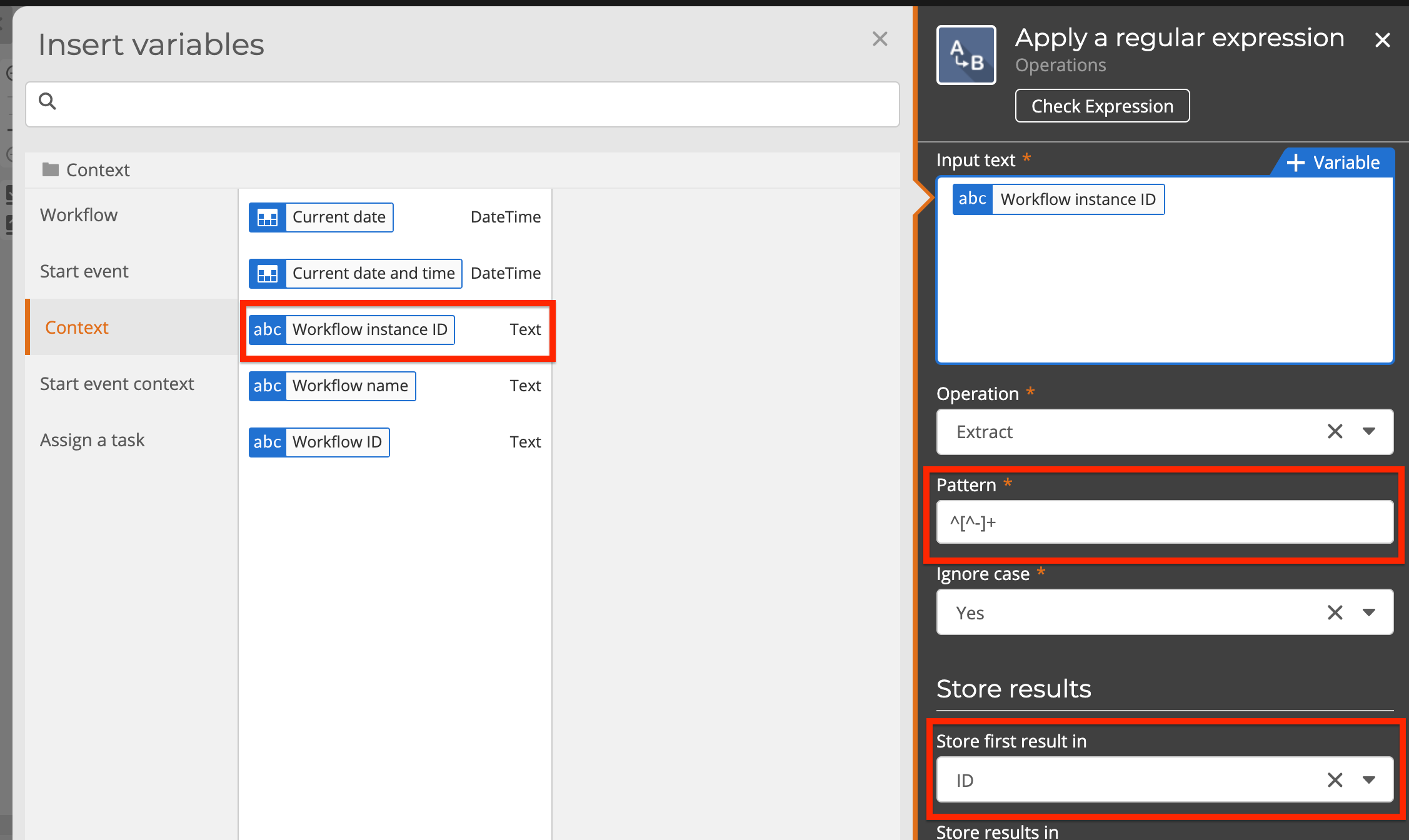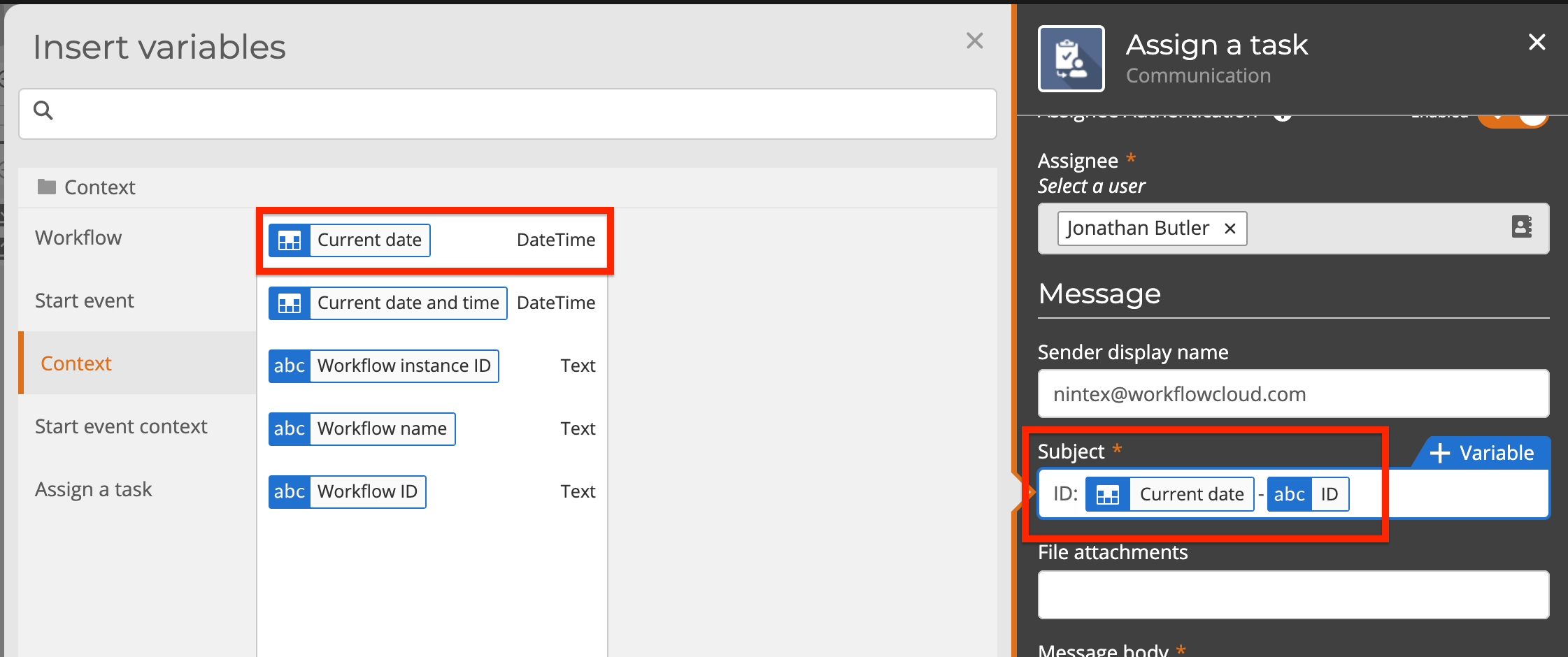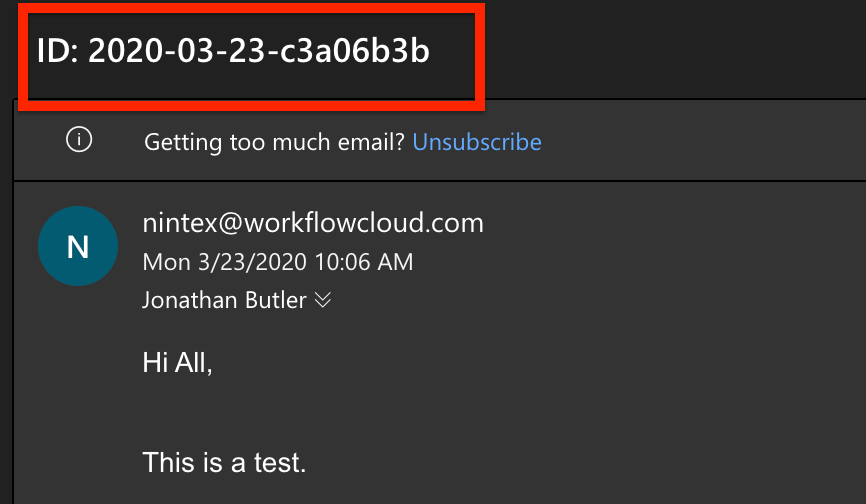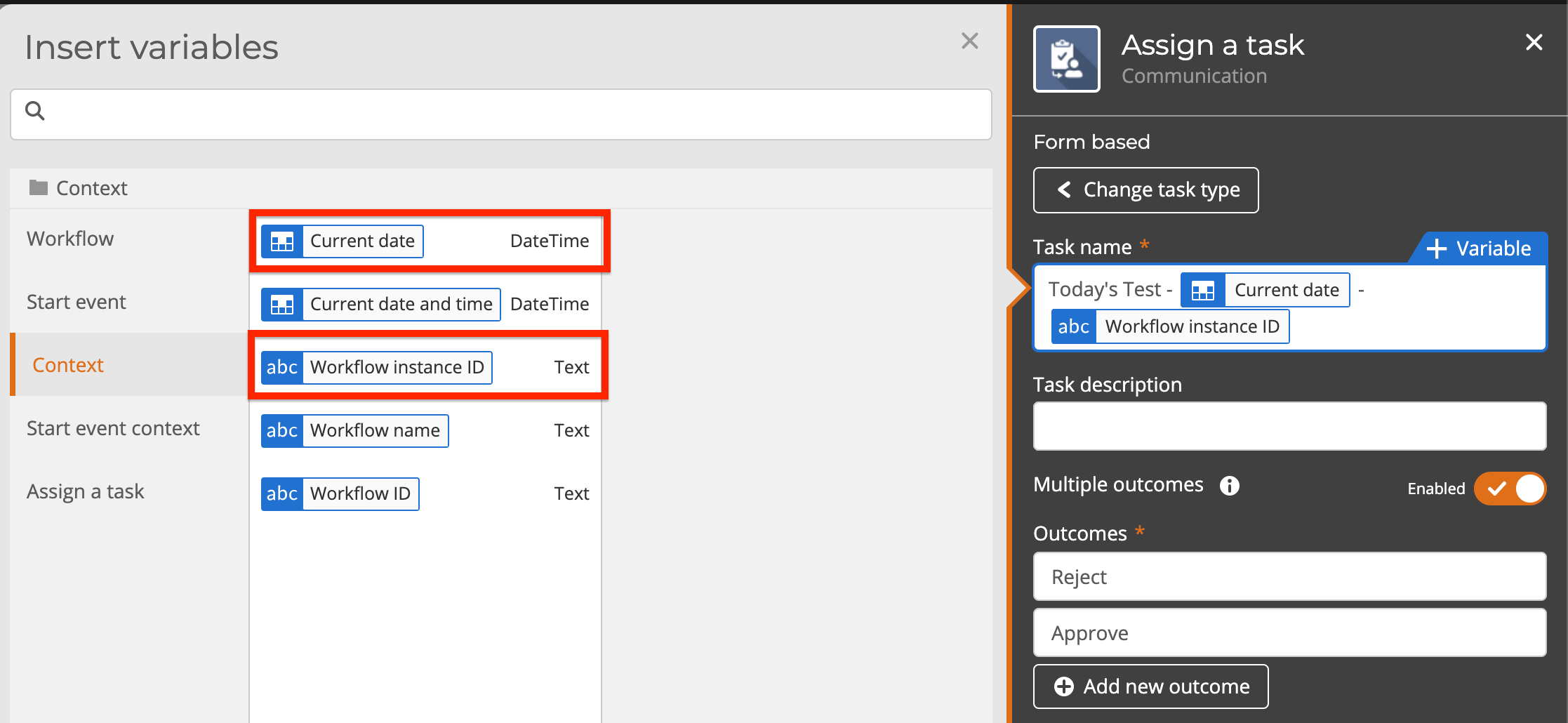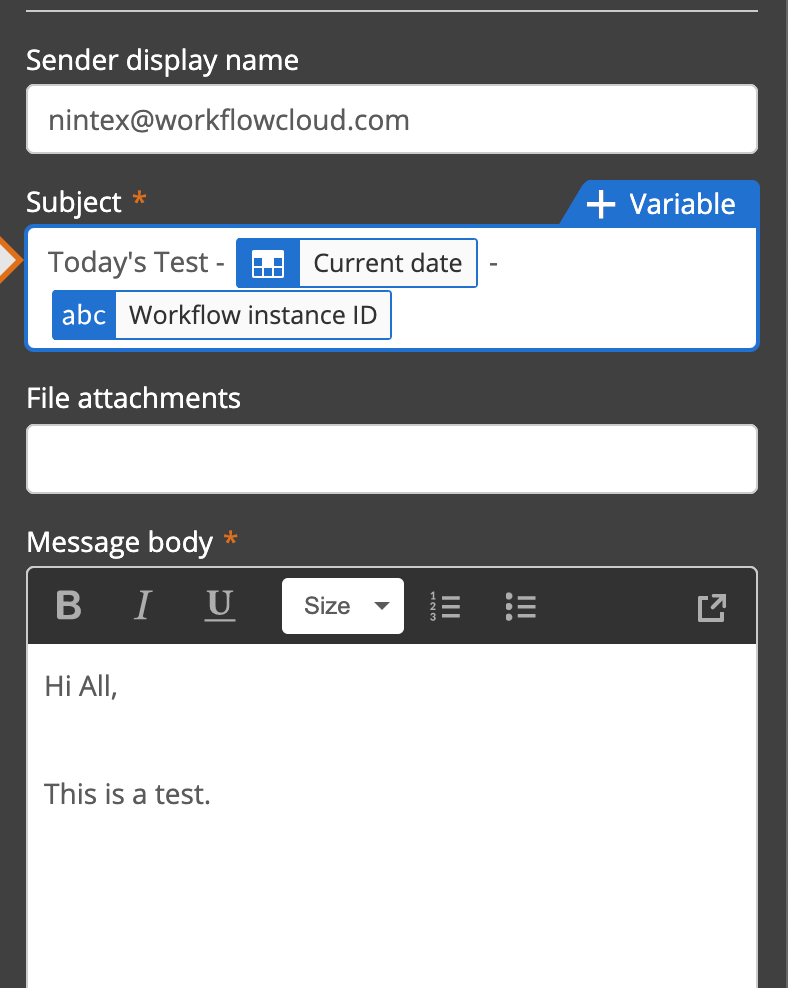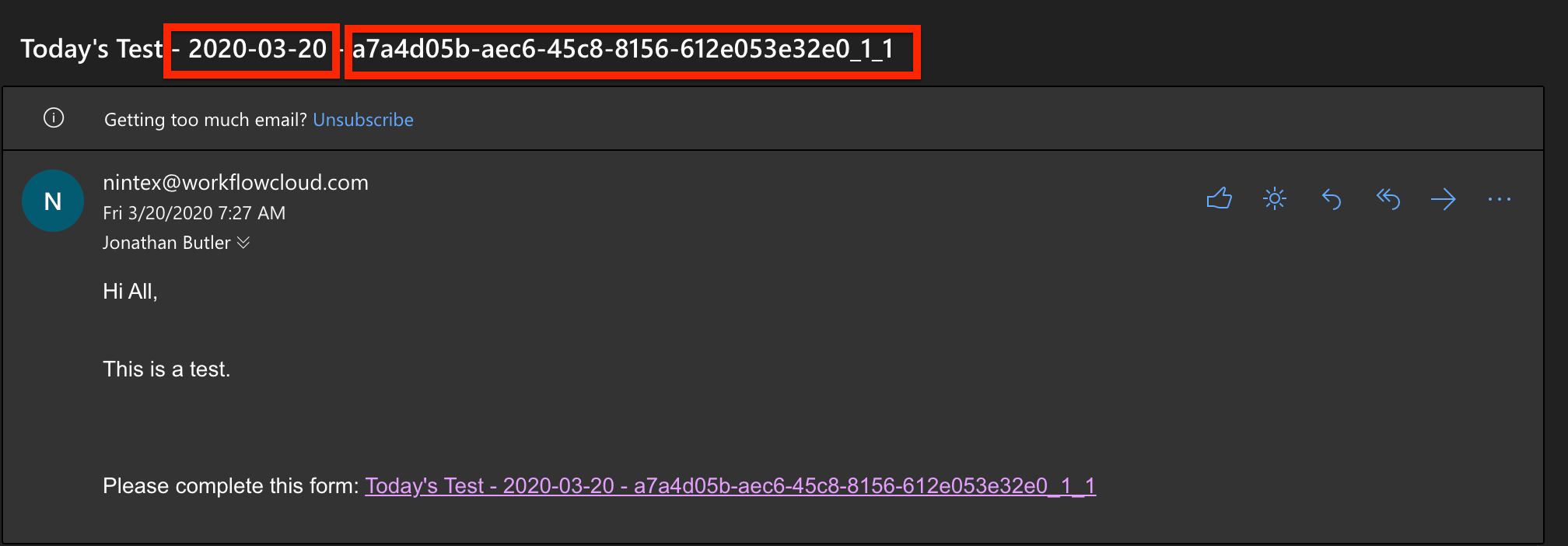Hey Nintex Community,
I've gotten a few requests to implement a unique per-instance ID so that individual approvals don't get confused. I found this solution for Sharepoint and tried to implement it in NWC, but the "InstanceID" variable I stored just output "fn-FormatDate({Common:CurrentDate},yyyy)-{ItemProperty:ID}" as a string rather than 2020-001 or however it's supposed to work.
Screenshot of end result attached.
How do I adapt this for the Cloud? Thanks :)


